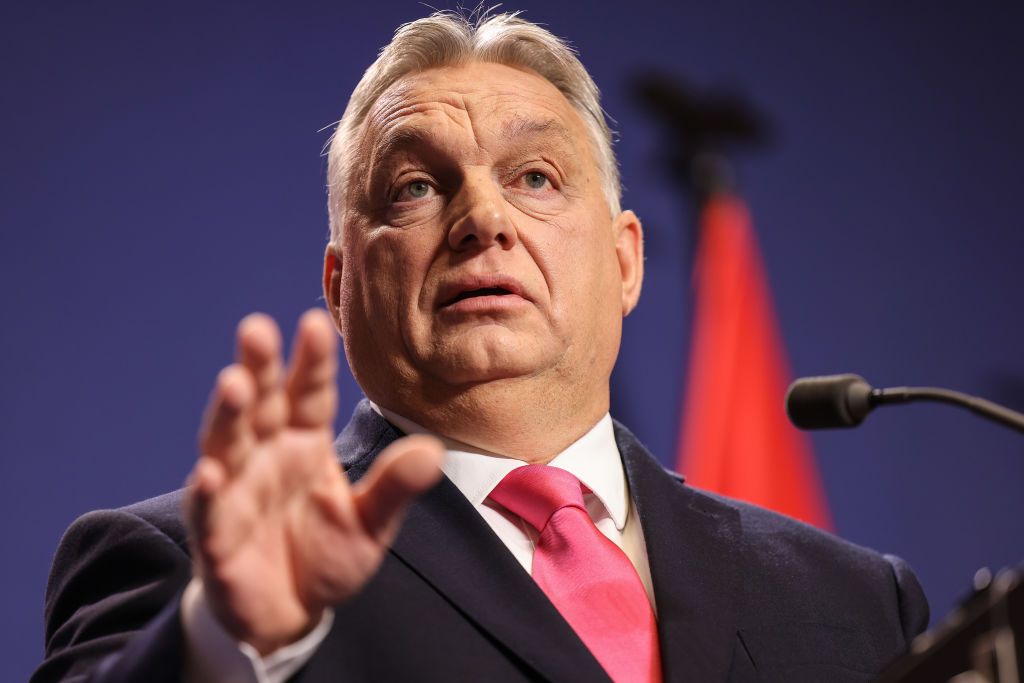Hungarian far-right leader calls for seizure of Ukraine's Zakarpattia Oblast if Russia wins war

The Hungarian far-right party Our Homeland declared its claim to Ukraine's Zakarpattia Oblast if Ukraine loses the war, party leader Laszlo Toroczkai said on Jan. 27.
Zakarpattia Oblast, bordering Slovakia and Hungary to the west, and Romania to the south, has a significant population of ethnic Hungarians. The issue of minority rights has created friction between Hungary and Ukraine, particularly centered around Ukrainian state linguistic policies.
The language law that has long been a source of strife between Hungary and Ukraine was instituted in 2017 and requires at least 70% of education above fifth grade to be conducted in Ukrainian.
In response to criticism, Ukraine has said that it does not intend to limit the linguistic rights of its minorities but rather to simply ensure that all Ukrainian citizens have the sufficient capability to speak the national language, Ukrainian.
Our Homeland has called for increased autonomy for ethnic Hungarians in Ukraine and in other neighboring countries with a Hungarian diaspora.
The party, which currently holds six seats out of a total of 199 in Hungary's parliament, has been criticized for its nativist views and rhetoric. Toroczkai has made a number of controversial statements, including some deemed to be antisemitic, anti-Roma, and anti-immigrant.
Dora Duro, a member of Our Homeland in the Hungarian parliament, also said in an interview with the Russian state-controlled media outlet Izvestia in April 2023 that Ukraine would need Russia's permission to join NATO.
Toroczkai's comments about the proposed plan to claim Ukrainian territory came at a party conference in Budapest, which was also attended by representatives of other far-right parties from Europe, including Alternative for Germany (AfD) and the Dutch Forum for Democracy.
"If this war ends up with Ukraine losing its statehood, because this is also on the cards, then as the only Hungarian party taking this position, let me signal that we lay claim to (Zakarpattia Oblast)," Toroczkai said.
Hungary's Foreign Ministry did not respond to requests for comment on Toroczkai's statements, Reuters said.
The news came ahead of a meeting between Ukraine's Foreign Minister Dmytro Kuleba and his Hungarian counterpart Peter Szijjarto scheduled to take place on Jan. 29 in the Zakarpattia Oblast city of Uzhhorod.
In the leadup to Szijjarto's visit, the Hungarian newspaper Magyar Nemzet, considered to be closely affiliated with Hungarian Prime Minister Viktor Orban, published an article condemning the state of Ukraine's press freedom. It also criticized Ukrainian media directives for journalists to use the official Ukrainian spelling of city names instead of the Russian version.
Since Russia launched its full-scale invasion in February 2022, Ukraine has continued an ongoing process of “de-Russification” that gained momentum after the EuroMaidan Revolution in 2014. Reclaiming Ukrainian names of cities has been a key element of this process.
Ukraine is still working on organizing a visit from Orban to Ukraine. The Hungarian prime minister said he had received an invitation from President Volodymyr Zelensky in December 2023 to hold a bilateral meeting in the future and accepted it.
Orban last visited Ukraine in 2010.
Hungary continues to undermine Western efforts to support Ukraine and sanctions against Russia. Budapest has maintained warm relations with Moscow amid the all-out war, and top Hungarian officials have visited Russia repeatedly since February 2022. Orban also met Russian President Vladimir Putin in October 2023 in Beijing.
Hungary blocked a 50 billion euro ($54 billion) aid package from the EU in December 2023 that was supported by all other member states. EU leaders are set to reconvene on the issue on Feb. 1, with Brussels signaling that a deal might be reached even without Hungary's approval.














